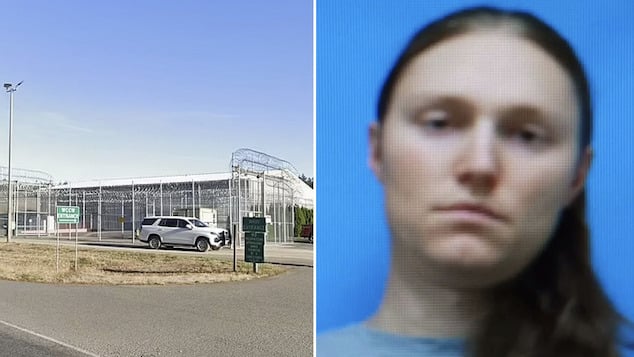

Mozzy Clark-Sanchez former Washington State inmate sues correctional facility after being routinely abused at hands of 6ft’4 trans child molester, Christopher Scott Williams who was housed as her cellmate. What rights of individual female prisoners versus those of trans identifying individuals?
A former female inmate in Washington State has filed a lawsuit after allegedly being assaulted by a transgender child molester housed as her cellmate at a women’s prison.
Mozzy Clark-Sanchez a former Washington Corrections Center for Women inmate, sued the state department of corrections in federal court last week for locking her in a cell with a 6-foot-4 convicted child molester who allegedly subjected her to months of stalking, threats of violence and sexual harassment and assault, according to the lawsuit.
Female inmate subjected to ongoing sex abuse at hands of trans child molester born as biological male
Christopher Scott Williams – who identifies as a woman – was convicted of sexually assaulting a young girl as a male, and was serving a separate sentence for domestic abuse.
According to a federal lawsuit filed last week, Clark-Sanchez claims Williams petitioned the state correctional facility to be recognized as a female and transferred to a women’s prison.
When the state granted the request and placed Williams in a cell with Clark, her life became a living nightmare, she alleged.
State DOC records show Williams is listed as female at the Washington Corrections Center for Women.
During that time, Clark-Sanchez claims Williams – who slept on the top bunk – would threaten to rape her, ogle her while she was in the shower and constantly ask for sex, including once with a homemade dildo he brought into the cell, the New York Post reported.
‘Mr. Williams… would hover menacingly over Ms. Clark’s bunk with an erection while touching himself,’ the suit alleges, according to the tabloid.
Rights of individual female prisoners vs self identifying trans individuals?
‘He would also display his erection to Ms. Clark against the wall and gesture towards it, saying how much he wanted her.
‘One night, Ms. Clark woke up and saw inmate Williams sitting on the floor next to her bed with his arms under her blanket, rubbing her genitals.’
Eventually Williams was moved to a separate cell, but allegedly proceeded to seek out Clark-Sanchez while she was in the shower or bathroom and make perverted comments from the next stall.
‘He also started threatening her with violence if she complained about him again,’ the suit alleges.
The filed suit further alleges that prison officials ignored Clark-Sanchez’s concerns and discouraged her from filing official complaints.
The lawsuit also states that officials were aware of Williams’ prior sexual assault of a former female cellmate.
The prison maintained policies that Clark-Sanchez argues violate the constitutional rights of female inmates – including by housing biologically male prisoners with known histories of violence and sexual offenses in women’s facilities.
Clark-Sanchez is now seeking damages for emotional distress, humiliation and violations of her constitutional rights under the First, Eighth and Fourteenth Amendments.
Clark isn’t the only woman who claims to have suffered abuse at the hands of Williams.
In August, another inmate alleged lewd, intimidating behavior by Williams and other transgender inmates held in the Washington Corrections Center for Women in an interview with the National Review.
‘A bunch of women, when they’re in the showers, these people are just standing there. They don’t have to stand on their tippy toes and they look over and see everything. People were so uncomfortable. You feel kind of like you’ve been violated,’ the unnamed prisoner said.
At the time, the prison housed at least 11 transgender inmates, according to Daily Wire.
The Washington State Department of Corrections referred KIRO to its Transgender Housing Policy when asked for comment.
In its policy, the facility wrote: ‘The Washington State Department of Corrections strongly emphasizes the importance of inclusion and representation by recognizing the unique challenges that non-binary and transgender incarcerated people face.’






